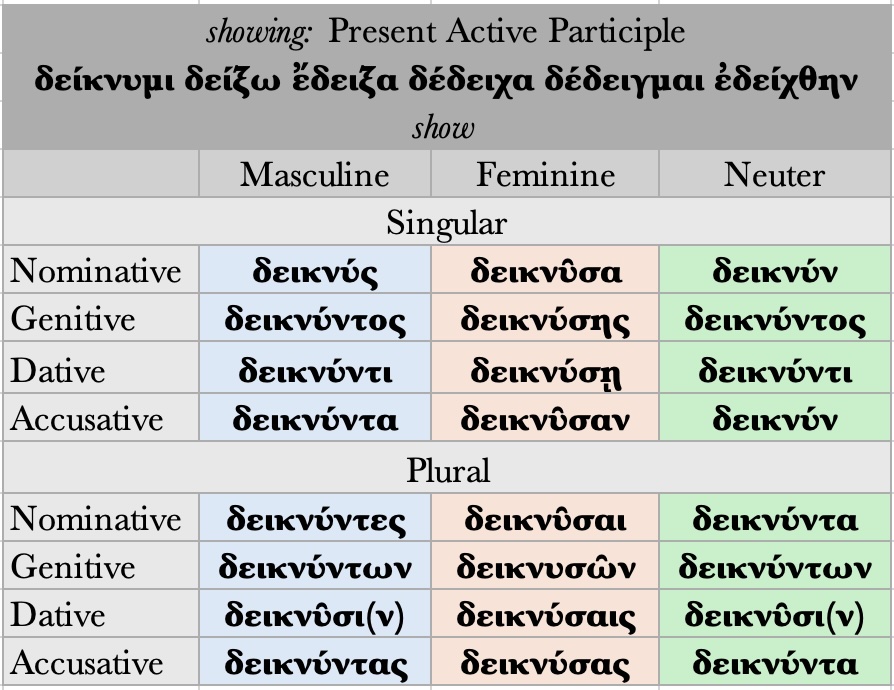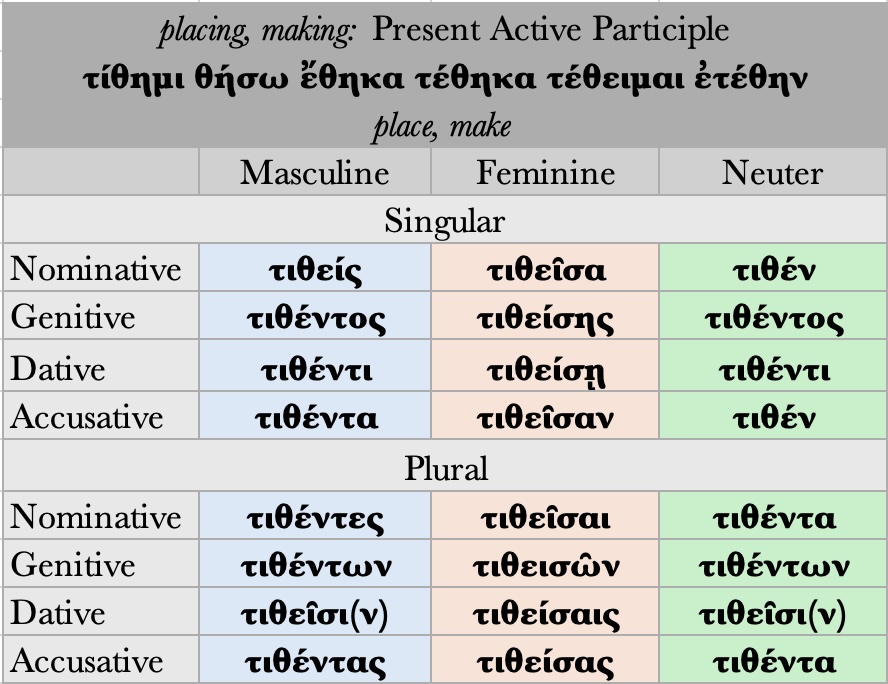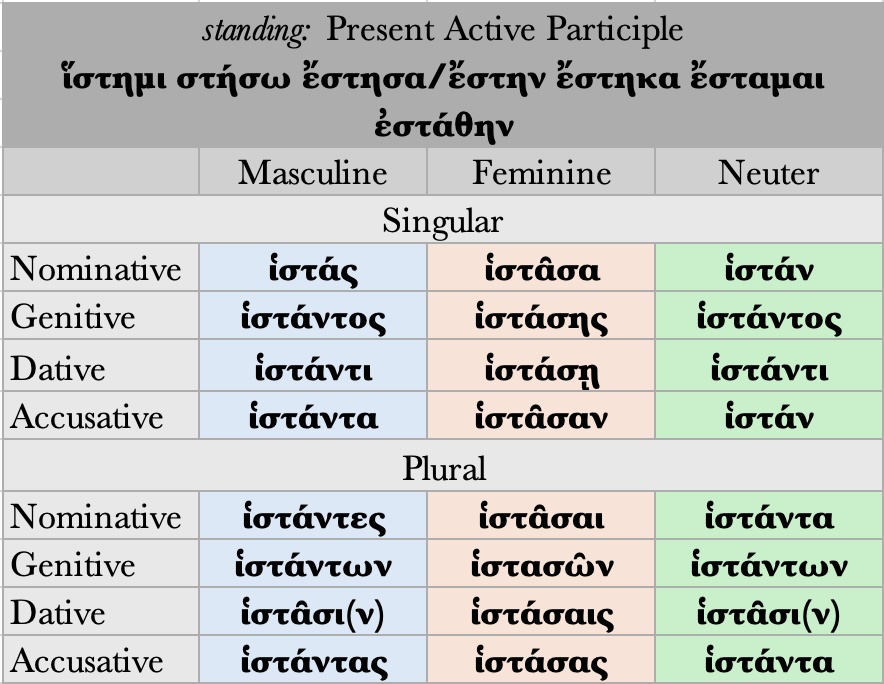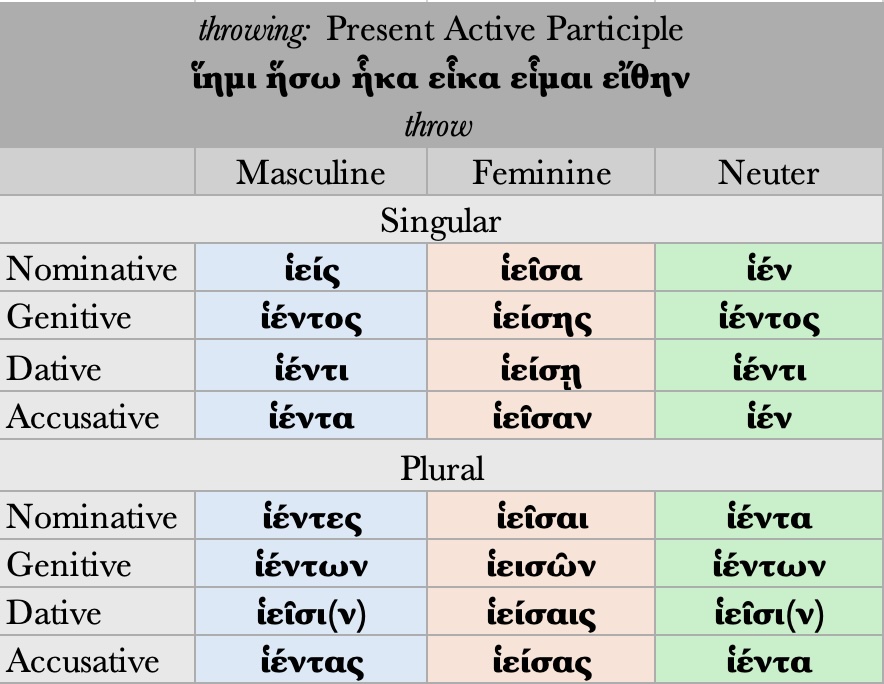37.13 For athematic (-μι) verbs, no thematic vowel is added before the ντ marker. The result is the following pattern:
- present stem + ντ + 3-1-3 adjective endings
Predictable sound changes yield the following endings for the NOMINATIVE SINGULAR of ATHEMATIC PRESENT ACTIVE participles:
- Masculine: (-ντς→-νς→) –ς
- Feminine: (-ντσα→-νσα→) –σα
- Neuter: (-ντ→) –ν
In other words, for athematic verbs, add ς, σα, ν as an ending.
- Read more
-
Note that while sound changes for THEMATIC participles result in the loss of the –τς in the MASCULINE NOMINATIVE SINGULAR (-οντς→-ονς→ –ων), for ATHEMATIC participles, what is lost is –ντ.
- Read More
-
Note that when υ is lengthened due to compensatory lengthening, the result is long υ.
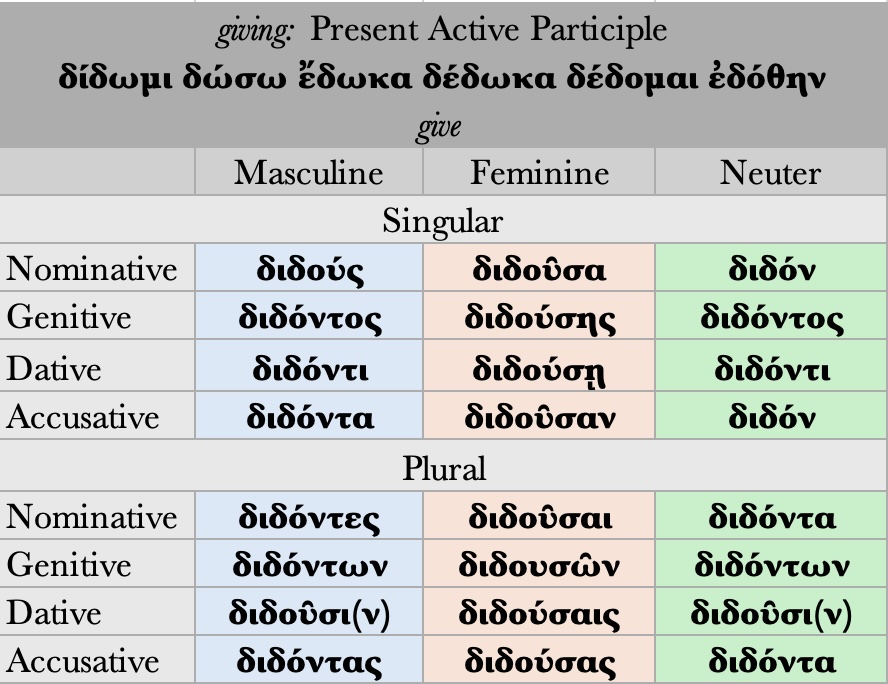
- Read More
-
Note that the stem of this participle is διδόντ. When ο is lengthened due to compensatory lengthening, the result is ου.
- Read More
-
Note that the stem of this participle is τιθέντ. When ε is lengthened due to compensatory lengthening, the result is ει.
- Read More
-
Note that the stem of this participle is ἱστάντ. When α is lengthened due to compensatory lengthening, the result is long α.
- Read More
-
Note that the stem of this participle is ἱέντ. When ε is lengthened due to compensatory lengthening, the result is ει.
